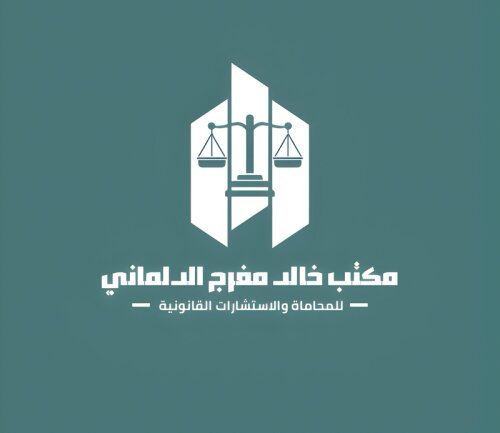Best General Litigation Lawyers in Kuwait
Share your needs with us, get contacted by law firms.
Free. Takes 2 min.
Or refine your search by selecting a city:
List of the best lawyers in Kuwait
About Litigation Law in Kuwait
Litigation in Kuwait encompasses the legal processes involved in resolving disputes between parties, where a case is presented before a court of law to be adjudicated by a judge. The legal framework in Kuwait is influenced heavily by Islamic law, given the country's status as an Islamic state. The Kuwaiti legal system is divided into various divisions including civil, commercial, criminal, administrative, and personal status courts. The litigation process itself can involve initial filings, discovery, hearings, trials, and possibly appeals, depending on the complexity and nature of the case.
Why You May Need a Lawyer
There are numerous situations in which individuals and businesses may require the assistance of a litigation lawyer in Kuwait. Common scenarios include commercial disputes such as breach of contract, real estate conflicts, employment disputes, family law issues such as divorce or child custody cases, criminal charges, and administrative matters involving the government. A qualified lawyer can provide expertise in navigating the legal system, ensuring that cases are presented effectively, and that the legal rights of clients are protected.
Local Laws Overview
Kuwait’s legal system combines civil law traditions with Islamic jurisprudence. Key aspects relevant to litigation include the Civil and Commercial Procedure Code and the Kuwaiti Penal Code. The Civil and Commercial Procedure Code governs the processes for litigation in civil and commercial cases, including rules on jurisdiction, filing procedures, and appeals. The Penal Code outlines offenses and punishments in criminal cases. Notably, litigation in Kuwait can be influenced by Sharia principles, particularly in personal status cases involving marriage, divorce, and inheritance.
Frequently Asked Questions
What is the first step in filing a lawsuit in Kuwait?
The first step is to file a complaint at the appropriate court, depending on the nature of the case (civil, criminal, or commercial). Legal representation is advised to ensure that the complaint is drafted correctly.
How long does a typical litigation process take in Kuwait?
The duration of litigation varies widely, depending on the complexity of the case and court schedules. Simple cases might be resolved in a few months, while more complicated disputes could take several years.
Is it mandatory to have a lawyer represent me in court?
While individuals may represent themselves in court, it is strongly recommended to hire a lawyer, especially for complex legal matters, to navigate the legal proceedings and rules effectively.
Can court decisions be appealed?
Yes, court decisions in Kuwait can typically be appealed. The appeals process involves submitting a notice of appeal and can be pursued in higher courts up to the Court of Cassation for final decisions.
How is evidence presented in Kuwaiti courts?
Evidence in Kuwaiti courts can include documents, witness testimony, expert reports, and physical evidence. The rules of procedure and evidence guide how this material is presented and examined in court.
Are court proceedings in Kuwait open to the public?
Generally, court sessions are public, although in certain sensitive cases, sessions may be held in private at the judge's discretion to protect parties or confidential information.
How are disputes typically resolved outside of court?
Disputes can be resolved through alternative dispute resolution methods such as arbitration or mediation, which are often faster and less formal than court litigation.
Does Islamic law influence litigation practices in Kuwait?
Yes, Islamic law influences many areas of personal status law and other legal practices, especially in cases involving family matters and inheritance.
What are the costs involved in litigation?
Costs can include court fees, legal representation fees, and potentially costs for expert witnesses or evidence preparation. Lawyers may require an upfront retainer fee, with additional costs accruing as the case proceeds.
How do I enforce a court judgment in Kuwait?
After obtaining a favorable judgment, enforcement proceedings must be initiated through the enforcement court to compel the losing party to comply with the court’s decision.
Additional Resources
For additional assistance, individuals can contact the Kuwaiti Ministry of Justice or visit their website for more information. Legal aid services may be provided by the Kuwait Bar Association or other local NGOs to those who qualify. Arbitration centers like the Kuwait Commercial Arbitration Center also provide services for alternative dispute resolutions.
Next Steps
If you need legal assistance in litigation, consider consulting with a qualified lawyer who specializes in the relevant area of law. Begin by gathering all relevant documentation pertaining to your case. Schedule an initial consultation to discuss your situation, learn about your legal options, and plan the appropriate legal strategy. It is important to choose a reputable attorney or law firm with experience in litigation cases similar to yours to enhance your chances of achieving a favorable outcome.
Lawzana helps you find the best lawyers and law firms in Kuwait through a curated and pre-screened list of qualified legal professionals. Our platform offers rankings and detailed profiles of attorneys and law firms, allowing you to compare based on practice areas, including General Litigation, experience, and client feedback.
Each profile includes a description of the firm's areas of practice, client reviews, team members and partners, year of establishment, spoken languages, office locations, contact information, social media presence, and any published articles or resources. Most firms on our platform speak English and are experienced in both local and international legal matters.
Get a quote from top-rated law firms in Kuwait — quickly, securely, and without unnecessary hassle.
Disclaimer:
The information provided on this page is for general informational purposes only and does not constitute legal advice. While we strive to ensure the accuracy and relevance of the content, legal information may change over time, and interpretations of the law can vary. You should always consult with a qualified legal professional for advice specific to your situation.
We disclaim all liability for actions taken or not taken based on the content of this page. If you believe any information is incorrect or outdated, please contact us, and we will review and update it where appropriate.
Browse general litigation law firms by city in Kuwait
Refine your search by selecting a city.

















